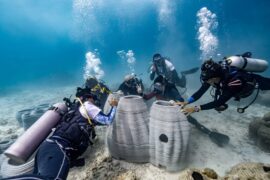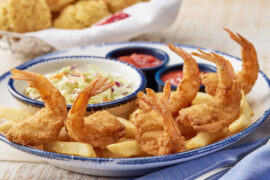Hilton Worldwide announced on November 30 that it is the first global hotel operator to serve Marine Stewardship Council (MSC) eco-labeled and certified cod in its restaurants at 41 locations across the United Kingdom, Holland and Belgium. Each property has achieved MSC chain of custody certified status, and Hilton’s 41 remaining luxury and full-service owned, leased and managed hotels in these countries are on track to receive MSC chain of custody certification by 2017.
This landmark step is part of Hilton’s strategy toward more responsible and sustainable sourcing around the world. Last April, the company implemented a ban on menuing shark fin dishes across all its restaurants and food and beverage facilities globally, and in March of this year Hilton Singapore became the first hotel in Asia to achieve MSC chain of custody certification.
Maxime Verstraete, Hilton Worldwide’s vice president in charge of sustainability, commented: “This is part of our long term commitment to responsible sourcing, while at the same time maintaining the highest culinary standards. Seafood is a popular choice with our guests, and it’s critical that we include sustainable fishing practices in our sourcing strategy if it is to remain available in the future.”
Rupert Howes, chief executive officer of the MSC, said: “This certification clearly establishes Hilton as a leader within the hotel sector. The pledge shows that Hilton has a deep-rooted commitment to sustainable seafood and by choosing MSC-certified cod, Hilton is rewarding fishermen who have demonstrated their sustainability, helping to make sure our oceans are protected for generations to come.”
The news follows Hilton’s announcement with World Wildlife Fund (WWF) conservation non-government organization to collaborate to evolve the hospitality company’s global business practices and reduce its impact on the environment. As part of this work, Hilton is focusing on sustainable seafood, which includes procuring from fisheries and farms meeting the most comprehensive and credible standards – Marine Stewardship Council certified fisheries and Aquaculture Stewardship Council certified farms. These efforts, in conjunction with supply chain engagement and education, aim to ensure the viability of seafood sources and healthier oceans.





